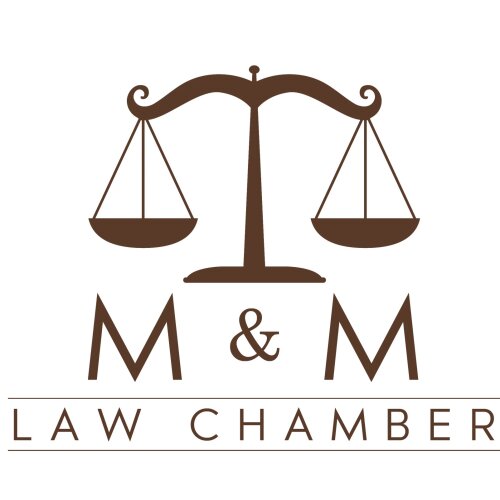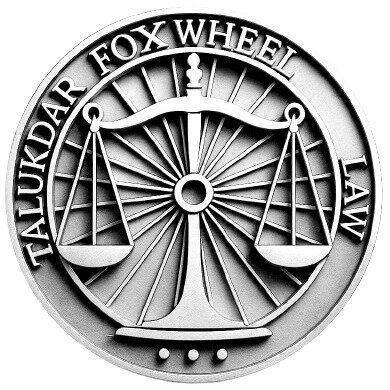Best Juvenile Law Lawyers in Guwahati
Share your needs with us, get contacted by law firms.
Free. Takes 2 min.
List of the best lawyers in Guwahati, India
About Juvenile Law in Guwahati, India
Juvenile Law in Guwahati, as in the rest of India, addresses the legal processes and protections concerning children and adolescents who come into conflict with the law or are in need of care and protection. The primary legislation governing these matters is the Juvenile Justice (Care and Protection of Children) Act, 2015 (JJ Act), which is designed to ensure the welfare, rehabilitation, and reintegration of juveniles. In Guwahati, the implementation of the JJ Act is managed by local authorities, including the Assam State Child Protection Society and District Child Protection Units. The city has dedicated Juvenile Justice Boards and Child Welfare Committees that handle the cases of children in accordance with the law, prioritizing rehabilitation over punishment.
Why You May Need a Lawyer
Legal assistance in matters of Juvenile Law is often essential because these cases involve complex procedures and sensitive issues. Common situations where people in Guwahati may require a juvenile law lawyer include:
- If a minor is accused of committing an offense and faces proceedings before a Juvenile Justice Board.
- If a child is in need of care and protection due to neglect, abuse, or abandonment.
- During child custody disputes involving minors.
- If there are concerns about the rights and welfare of a child in foster care or institutional care.
- While seeking adoption or legal guardianship of a child.
- To appeal or challenge decisions made by child welfare committees or authorities.
- If advice or representation is needed regarding rehabilitation or aftercare for juveniles.
Local Laws Overview
The key aspects of local laws relevant to Juvenile Law in Guwahati are shaped by both national and state-specific regulations:
- The Juvenile Justice (Care and Protection of Children) Act, 2015 is the central law that stipulates procedures and protections for juveniles.
- Children below 18 years are considered juveniles under most circumstances.
- The law makes a distinction between children in conflict with law (accused of crimes) and children in need of care and protection.
- Guwahati has Juvenile Justice Boards (JJBs) to handle cases related to juveniles accused of crimes and Child Welfare Committees (CWCs) for care and protection matters.
- The JJ Act emphasizes rehabilitation, skill development, and restoration of juveniles over punitive measures.
- Assam State Rules further supplement the JJ Act to address local practices, procedures, and institutions.
- There are additional guidelines from the National Commission for Protection of Child Rights (NCPCR) and the Assam State Child Protection Society.
Frequently Asked Questions
What qualifies as a "juvenile" or "child" under the law in Guwahati?
A juvenile or child is any person under the age of 18 years according to the Juvenile Justice Act, 2015.
What happens if a minor is accused of committing a crime?
The minor's case is heard by the Juvenile Justice Board. The board conducts an inquiry focusing on the child's best interests, aiming for rehabilitation rather than punishment. The child is not treated or housed with adult offenders.
Can a juvenile in Guwahati be tried as an adult?
In rare cases, if a child aged 16-18 years commits a "heinous offense" (punishable by 7+ years imprisonment), the board may conduct a preliminary assessment and decide if the child should be tried as an adult. This process involves careful consideration and legal oversight.
What are the rights of a child in legal proceedings?
Children have rights to protection, legal representation, privacy, and rehabilitation. Proceedings are confidential, and the child’s identity is protected.
How are children in need of care and protection identified?
These children may include those who are abandoned, lost, abused, forced into labor or marriage, or found begging. Cases are typically presented to the Child Welfare Committee for intervention.
What is the role of Child Welfare Committees?
CWCs are quasi-judicial bodies that determine the care, protection, and rehabilitation needs of children in distress. They can order placement in shelters, restoration to family, or alternative care.
Is bail available for juveniles?
Yes, bail is generally the norm for juveniles, except when release is not in the best interests of the child or may expose the child to further harm.
What are the rehabilitation provisions for juveniles in Guwahati?
The law mandates counseling, education, skill training, and family-based care for rehabilitation. Institutions regulated under the JJ Act, 2015 provide these services.
Can decisions of the Juvenile Justice Board or Child Welfare Committee be appealed?
Yes, there is provision for appeal and review of orders passed by these authorities in higher courts or the relevant appellate authorities.
Who should be contacted in case of suspected child abuse or a child in conflict with the law?
Immediate assistance can be sought from the police (especially the child-friendly "Special Juvenile Police Unit"), District Child Protection Unit, or by dialing the Childline number 1098.
Additional Resources
Here are some helpful resources and organizations for individuals seeking juvenile law advice or support in Guwahati:
- Juvenile Justice Board, Kamrup (Metro): Handles juvenile cases in Guwahati.
- Child Welfare Committee, Kamrup (Metro): For children in need of care and protection.
- Assam State Child Protection Society: Oversees implementation of child protection laws and schemes in Assam.
- District Child Protection Unit (DCPU), Kamrup: Provides support and intervention in child welfare cases.
- Childline 1098: A 24x7 helpline for reporting child abuse and seeking emergency assistance.
- Assam State Legal Services Authority (ASLSA): Provides free legal aid and advice.
- State Commission for Protection of Child Rights (SCPCR), Assam: Monitors child rights and welfare issues.
- District Legal Services Authority (DLSA), Kamrup: Offers local legal aid and guidance.
Next Steps
If you or someone you know is dealing with a juvenile law issue in Guwahati, consider the following steps:
- Identify the situation: Determine whether the matter involves a child in conflict with the law or a child in need of care and protection.
- Seek immediate help if required: For emergencies such as abuse or neglect, contact Childline (1098), the police, or the District Child Protection Unit.
- Consult a qualified lawyer: For legal representation and expert advice, approach a lawyer specializing in juvenile law or contact the District Legal Services Authority for free assistance.
- Prepare documentation: Gather all relevant documents, such as identification, FIRs, medical reports, or correspondence with authorities.
- Attend relevant hearings: Participate in proceedings before the Juvenile Justice Board or Child Welfare Committee as required.
- Engage with support services: Utilize resources offered by protection societies or NGOs for rehabilitation and welfare support.
- File appeals if needed: If dissatisfied with a decision, consult your lawyer about the process for appeals or review in higher forums.
Understanding your rights and responsibilities under juvenile law is crucial for securing the best outcome for children. Professional legal support can ensure that the process protects the child’s welfare and future prospects.
Lawzana helps you find the best lawyers and law firms in Guwahati through a curated and pre-screened list of qualified legal professionals. Our platform offers rankings and detailed profiles of attorneys and law firms, allowing you to compare based on practice areas, including Juvenile Law, experience, and client feedback.
Each profile includes a description of the firm's areas of practice, client reviews, team members and partners, year of establishment, spoken languages, office locations, contact information, social media presence, and any published articles or resources. Most firms on our platform speak English and are experienced in both local and international legal matters.
Get a quote from top-rated law firms in Guwahati, India — quickly, securely, and without unnecessary hassle.
Disclaimer:
The information provided on this page is for general informational purposes only and does not constitute legal advice. While we strive to ensure the accuracy and relevance of the content, legal information may change over time, and interpretations of the law can vary. You should always consult with a qualified legal professional for advice specific to your situation.
We disclaim all liability for actions taken or not taken based on the content of this page. If you believe any information is incorrect or outdated, please contact us, and we will review and update it where appropriate.













